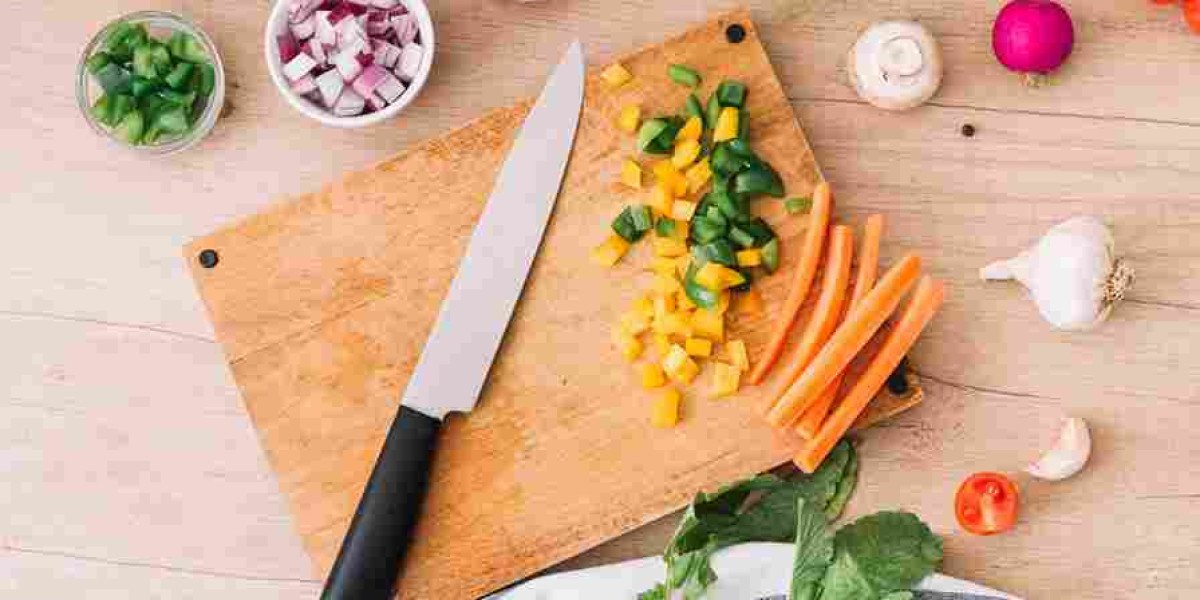When it comes to kitchen tools, knives are among the most essential items. Whether you are a professional chef or a home cook, the right knife can make a significant difference in your cooking experience. Two of the most popular blade materials used in kitchen knives today are stainless steel and Damascus steel. Understanding the differences between these materials can help you make an informed decision when choosing a knife set for your kitchen.
What is Stainless Steel?
Stainless steel is one of the most common materials used in knife production. It is an alloy made primarily from iron, carbon, and chromium. The chromium content in stainless steel is what gives cookware it its resistance to rust and corrosion, making it a popular choice for kitchen environments where moisture is frequently present.
There are several types of stainless steel used in knives, such as 420, 440, and high-carbon stainless steel. Each type has its own balance of durability, sharpness, and corrosion resistance. High-carbon stainless steel, in particular, offers a better edge retention compared to standard stainless steel and is a favored option among many chefs.
Benefits of Stainless Steel Knives
One of the biggest advantages of stainless steel knives is their resistance to rust and staining. This makes them low-maintenance and ideal for everyday use in a busy kitchen. They are also generally more affordable than other high-end materials, making them accessible to most users.
Stainless steel knives are also relatively easy to sharpen, and with proper care, they can maintain a sharp edge for a reasonable amount of time. They are durable, resistant to wear, and often come with comfortable handles designed for extended use.
What is Damascus Steel?
Damascus steel is known for its striking wavy or patterned design on the blade, but it is more than just a beautiful finish. Traditionally, Damascus steel was made by forging together two or more types of steel and iron, resulting in a blade that combines both hardness and flexibility. Today, most modern Damascus knife sets are made using a core of high-carbon steel layered with softer stainless steel for added durability and corrosion resistance.
The process of making Damascus steel involves repeatedly folding and hammering the metal, which creates its distinctive look and enhances its structural integrity. This forging method also contributes to the blade’s ability to hold a sharp edge for longer periods.
Benefits of Damascus Knives
Damascus knives are highly regarded for their sharpness and edge retention. The forging process used in their creation results in a blade that is both hard and flexible, giving it superior cutting performance compared to standard stainless steel knives.
A major appeal of Damascus knives is their visual design. Each blade is unique, with intricate patterns that make them stand out in any kitchen. In addition to their aesthetic cookware appeal, they offer a balance of performance and beauty, making them a popular choice among professional chefs and knife enthusiasts.
Key Differences Between Stainless Steel and Damascus Knives
While both stainless steel and Damascus knives have their strengths, they cater to different needs and preferences.
Durability: Stainless steel knives are generally more resistant to corrosion and easier to maintain, whereas Damascus knives, depending on their composition, may require more careful handling and maintenance.
Sharpness: Damascus knives typically offer superior edge retention, which means they stay sharp for longer. However, they may also require more skill and tools to sharpen properly. It is also very important to take care for your kitchen tools and equipments
Appearance: Stainless steel knives often have a clean, polished look, while Damascus knives are known for their distinctive patterned blades.
Cost: Stainless steel knives are usually more affordable and widely available. Damascus knives, due to their complex manufacturing process and unique design, tend to be more expensive.
Usage: For general household use, stainless steel knives are often sufficient. For those who cook frequently, value high performance, or appreciate craftsmanship, investing in a Damascus knife set might be worthwhile.
Which Knife Set Should You Choose?
The choice between stainless steel and Damascus knife sets depends largely on your personal cooking habits, budget, and preferences. If you are looking for something practical, easy to maintain, and budget-friendly, stainless steel knives are a solid choice. On the other hand, if you want a knife set that offers superior cutting performance, long-lasting sharpness, and a touch of elegance, Damascus knives are worth the investment.
Both types of knife sets have their place in the kitchen. Understanding their characteristics will help you select the best tool for your needs and enhance your overall cooking experience.
Read more blogs on sharetheworldinc.com
Download lifesmile application from app and play store








